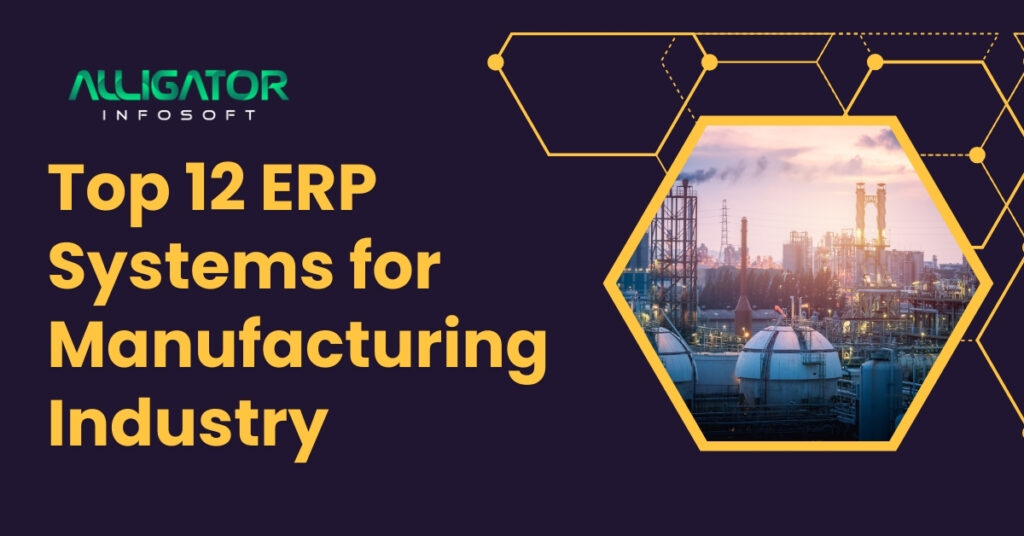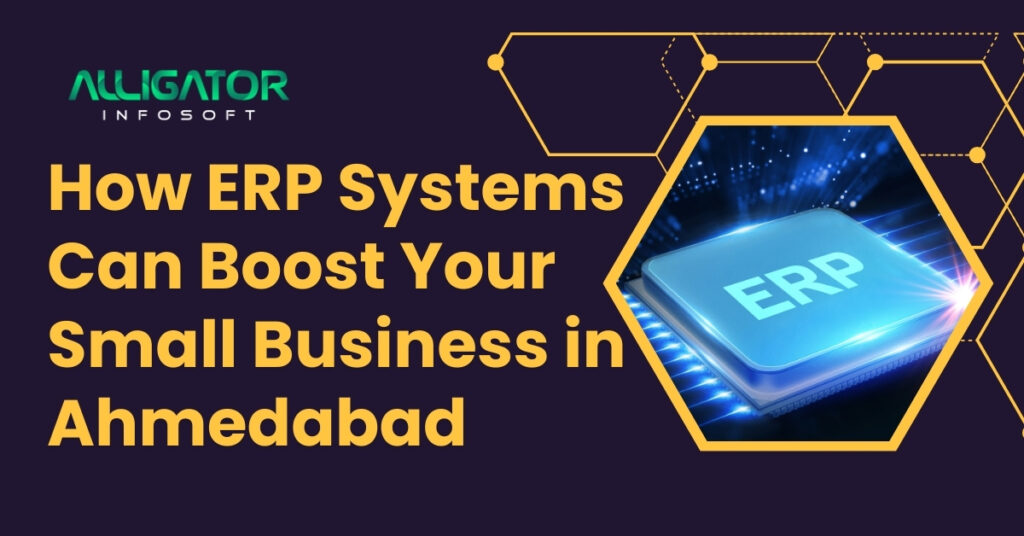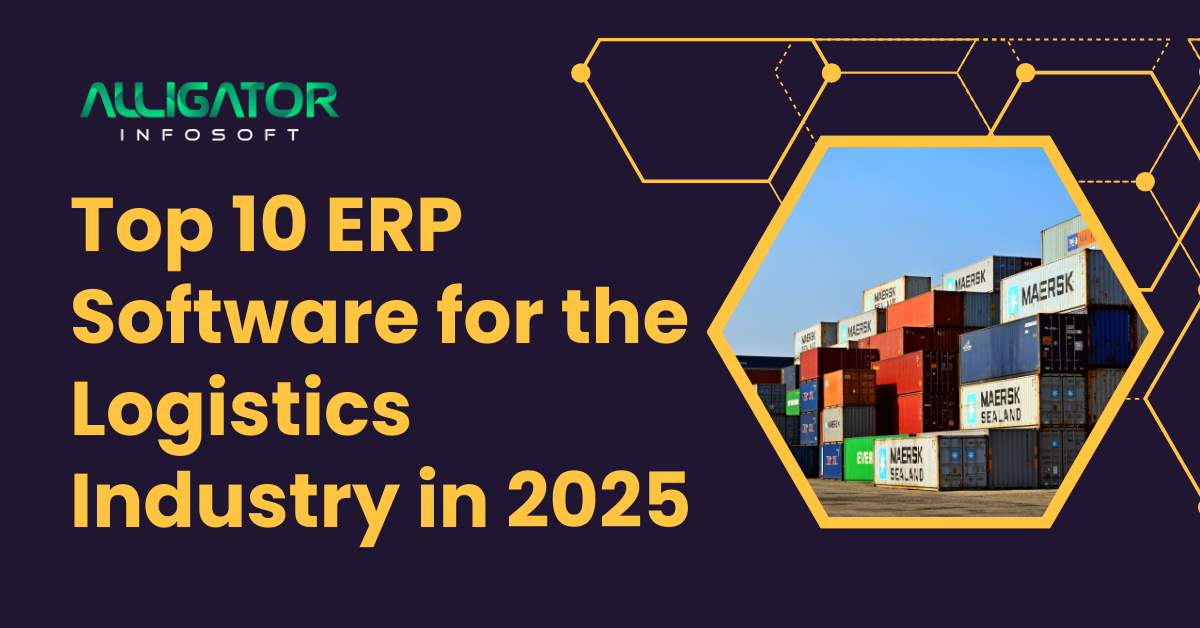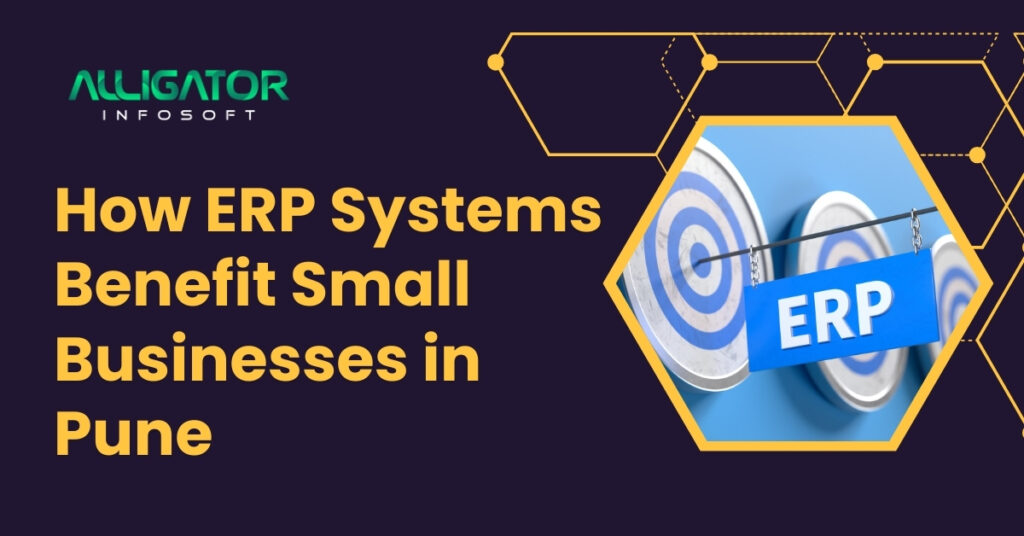Top 12 ERP Systems for Manufacturing Industry
In the fast-paced world of manufacturing, staying organized and efficient is key. That’s where ERP (Enterprise Resource Planning) software comes in. Think of ERP as a central hub that connects all parts of your business—production, inventory, finances, and more—into one streamlined system. This makes managing your operations easier and more effective. In this article, we’ll explain what manufacturing ERP software is, the benefits it offers, and how to choose the right one for your business. We’ll also look at the top 12 ERP systems for manufacturing, with a special focus on why Odoo ERP stands out as a top choice. By the end, you’ll know how ERP can boost your manufacturing business and which systems might be the best fit for you. What is Manufacturing ERP Software? Manufacturing ERP (Enterprise Resource Planning) software is a powerful tool designed to help manufacturing companies manage their operations more effectively. At its core, an ERP system integrates various functions within a business into one cohesive platform. This integration helps streamline processes, improve data accuracy, and enhance decision-making. For manufacturing businesses, ERP software covers a wide range of functions, including: Production Planning: Helps schedule and manage production runs, ensuring that manufacturing processes are efficient and meet demand. Inventory Management: Tracks raw materials, work-in-progress, and finished goods, helping to optimize stock levels and reduce waste. Supply Chain Management: Manages relationships with suppliers, tracks deliveries, and coordinates logistics to ensure that materials and products flow smoothly. Financial Management: Handles accounting, budgeting, and financial reporting, providing a clear picture of the company’s financial health. Human Resources: Manages employee information, payroll, and other HR functions to keep your workforce organized. By bringing all these functions together, ERP software provides a unified view of your business, allowing for better coordination and efficiency across different departments. Things to Consider When Choosing ERP Systems for Manufacturing Selecting the right ERP system for your manufacturing business is a critical decision. Here are some key factors to consider: 1. Industry-Specific Features Not all ERP systems are created equal, and some are better suited for manufacturing than others. Look for an ERP solution that includes features specifically designed for manufacturing processes, such as production planning, inventory management, and supply chain logistics. This will ensure that the system meets the unique needs of your industry. 2. Scalability Your ERP system should be able to grow with your business. Consider whether the solution can handle increased complexity and scale as your manufacturing operations expand. This may involve adding new modules or accommodating more users and transactions. 3. Integration Capabilities Your ERP system should integrate seamlessly with other software and systems used in your business. For example, it should be able to connect with your existing accounting software, CRM system, or supply chain management tools. This integration ensures that data flows smoothly between different systems and reduces the risk of errors. 4. User-Friendliness A user-friendly interface is essential for ensuring that your team can easily adopt and use the ERP system. Look for a solution with an intuitive design and straightforward navigation. Additionally, consider whether the vendor offers training and support to help your team get up to speed. 5. Cost Evaluate both the initial investment and ongoing costs associated with the ERP system. This includes licensing fees, maintenance costs, and support charges. Be sure to compare these costs with the potential benefits and savings the system will provide. 6. Vendor Support The level of customer support provided by the ERP vendor is an important consideration. Look for a vendor with a strong reputation for customer service and support. This includes offering timely assistance, resolving issues quickly, and providing regular updates and improvements. To Know More: Benefits ERP in Manufacturing Industries Top 12 ERP Systems for Manufacturing Industries Choosing the right ERP system can be overwhelming, given the many options available. Here is a list of the top 12 ERP systems for manufacturing, highlighting their strengths and features: 1. Odoo ERP Odoo is a standout ERP solution known for its flexible, modular approach. Unlike other ERP systems that may offer a one-size-fits-all solution, Odoo allows businesses to customize their ERP setup by selecting only the features they need. This modular design means you can pick and integrate specific functionalities such as production planning, inventory management, sales, and more, tailoring the system to match your exact business requirements. For manufacturing businesses, Odoo provides a comprehensive suite of tools to handle various aspects of operations. Its production planning features help streamline manufacturing processes, while its inventory management tools ensure you keep track of stock levels and manage materials efficiently. Sales modules allow for smooth order processing and customer relationship management, enhancing overall operational efficiency. 2. SAP S/4HANA SAP S/4HANA is a powerful ERP solution designed for large manufacturing enterprises. Its real-time data processing capabilities enable businesses to manage complex manufacturing processes effectively. With comprehensive features for finance, supply chain management, and production planning, SAP S/4HANA offers valuable insights and improved decision-making. Its robust design ensures that large organizations can handle intricate operations while gaining real-time visibility into their business performance and processes. 3. Oracle ERP Cloud Oracle ERP Cloud delivers scalable, global ERP solutions ideal for complex manufacturing operations. It integrates financial management, procurement, and project management into a unified platform, providing advanced features for comprehensive business oversight. This robust system supports intricate manufacturing processes and offers flexible solutions to meet diverse business needs, helping organizations efficiently manage their operations and make informed decisions with real-time insights and integrated functionalities. 4. Microsoft Dynamics 365 Microsoft Dynamics 365 provides a versatile ERP solution with modules for finance, supply chain, and operations. Its robust integration capabilities and flexibility make it adaptable to a wide range of manufacturing needs. Whether for small businesses or large enterprises, Dynamics 365 helps streamline processes, improve efficiency, and support growth by offering tailored solutions that can scale with your business requirements. 5. Infor CloudSuite Industrial Infor CloudSuite Industrial, formerly known as SyteLine, is a comprehensive ERP solution tailored for manufacturers. It offers robust features for











